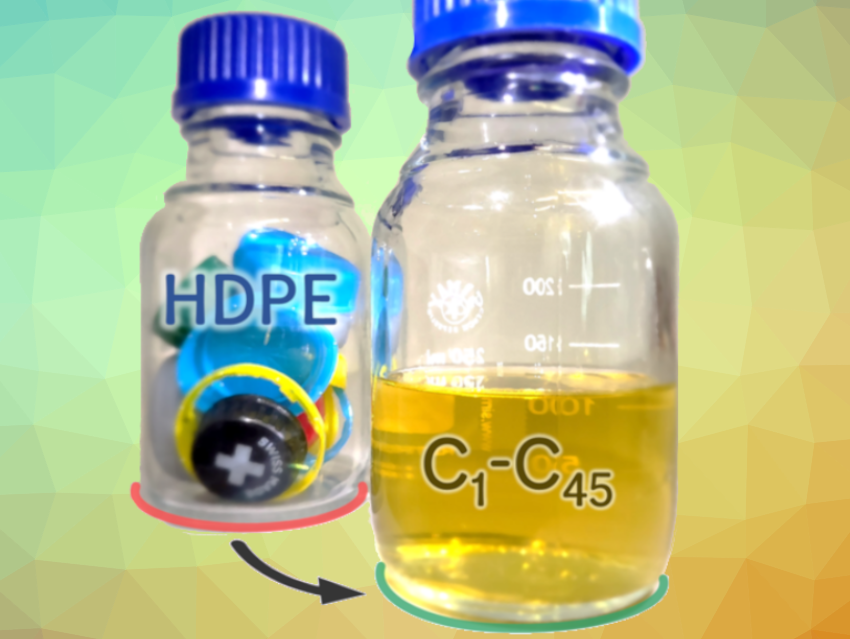Plastic waste is an important environmental problem. The chemical recycling of polymers can be useful in tackling this issue, giving monomers that can be reused or other chemical feedstocks. Catalytic hydrogenolysis, for example, can convert high-density polyethylene (HDPE), which makes up about 30 % of plastic waste, into valuable alkanes. However, research in this area has often focused on lab-grade HDPEs with low molecular weight. So far, no efficient catalyst had been available for consumer-grade HDPEs due to their lower reactivity.
Javier Pérez-Ramírez, Swiss Federal Institute of Technology (ETH) Zurich, Switzerland, and colleagues have developed a method for the catalytic hydrogenolysis of HDPE used in bottle caps with a molecular weight of ca. 200 kDa. The team used ultrafine ruthenium nanoparticles (with an average particle size of ca. 1 nm) supported on titania as a catalyst. The catalyst was prepared via a simple impregnation procedure followed by a thermal treatment. The hydrogenolysis was performed under comparatively mild conditions (225 °C, 20 bar H2) within 4 h. The products were identified using gas chromatography and 1H NMR spectroscopy.
The team achieved up to 80 % conversion into light alkanes (C1-C45). The catalyst was reused for three cycles. According to the researchers, the ultrasmall ruthenium particles were critical to the catalyst performance and the activity sharply decreased with increasing particle size. They also found that the presence of additives in commercial caps resulted in reduced activity. Overall, the work demonstrates the effective hydrogenolysis of consumer-grade polyethylene.
- Consumer Grade Polyethylene Recycling via Hydrogenolysis on Ultrafine Supported Ruthenium Nanoparticles,
Shibashish D. Jaydev, Antonio J. Martín, Marc E. Usteri, Katia Chikri, Henrik Eliasson, Rolf Erni, Javier Pérez-Ramírez,
Angew. Chem. Int. Ed. 2023.
https://doi.org/10.1002/anie.202317526



